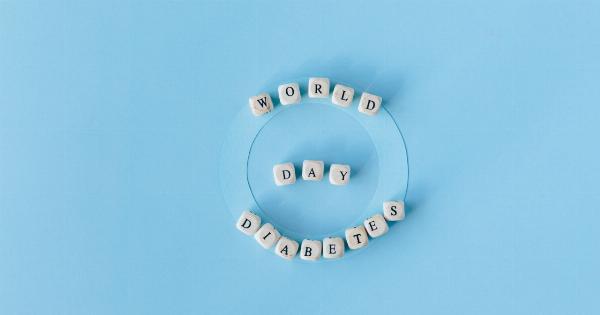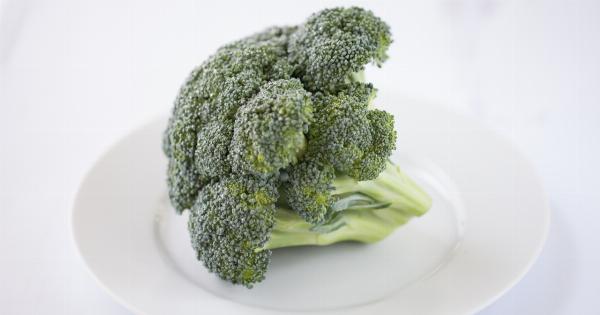Following a vegetarian diet can offer numerous health benefits, but it’s essential to pay attention to certain nutrients that may be lacking – one of them being vitamin B12.
This crucial vitamin plays a vital role in the formation of red blood cells, neurological function, and DNA synthesis. While it is predominantly found in animal-based foods, vegetarians, who avoid meat and fish, may find it challenging to meet their recommended daily intake of vitamin B12.
In this comprehensive guide, we will explore everything vegetarians need to know about vitamin B12, including why it’s important, how to ensure adequate intake, and potential sources of vitamin B12 for those on a vegetarian diet.
What is Vitamin B12 and Why is it Important?
Vitamin B12, also known as cobalamin, is a water-soluble vitamin that belongs to the B-vitamin family. It plays a crucial role in several bodily functions, making it essential for overall health and well-being.
The Benefits of Vitamin B12
Vitamin B12 offers several key benefits:.
- Red Blood Cell Formation: Vitamin B12 is essential for the production of healthy red blood cells. These cells are responsible for carrying oxygen throughout the body, promoting proper organ function and overall vitality.
- Neurological Function: Vitamin B12 is essential for the maintenance of a healthy nervous system. It helps in the production of myelin, a protective covering for nerves that allows electrical impulses to transmit efficiently.
- DNA Synthesis: Vitamin B12 is involved in DNA synthesis, which is crucial for the formation and maintenance of cells. It plays a vital role in growth, development, and overall cell health.
Signs and Symptoms of Vitamin B12 Deficiency
Vitamin B12 deficiency is more common in vegetarians due to the limited dietary sources of this vitamin. It can lead to a variety of symptoms, including:.
- Fatigue and Weakness: Low levels of vitamin B12 can result in general fatigue and weakness, making it harder to carry out everyday activities.
- Anemia: Vitamin B12 deficiency can lead to anemia, which manifests as pale skin, shortness of breath, and dizziness.
- Neurological Problems: Inadequate vitamin B12 intake can cause symptoms such as tingling or numbness in the hands and feet, balance problems, and cognitive decline.
- Mood Changes: Vitamin B12 plays a role in the synthesis of neurotransmitters involved in mood regulation. Deficiency may contribute to mood changes, depression, or anxiety.
- Digestive Issues: Some individuals may experience digestive problems, such as constipation or loss of appetite, as a result of insufficient vitamin B12 intake.
Recommended Daily Intake of Vitamin B12
The recommended daily intake of vitamin B12 varies by age and life stage:.
- Adults: Adults over the age of 18 should aim for 2.4 micrograms (mcg) of vitamin B12 per day.
- Pregnant and lactating women: Pregnant and lactating women have higher vitamin B12 requirements, with a recommended intake of 2.6 and 2.8 mcg per day, respectively.
Sources of Vitamin B12 for Vegetarians
Although the richest sources of vitamin B12 are animal-based foods, vegetarians can obtain this essential nutrient through other sources:.
- Dairy Products: Dairy products such as milk, cheese, and yogurt can be good sources of vitamin B12 for lacto-vegetarians.
- Eggs: Eggs are another source of vitamin B12 and can be consumed by ovo-vegetarians.
- Fortified Foods: Many vegetarian-friendly foods, including plant-based milk alternatives, cereals, and nutritional yeast, are fortified with vitamin B12.
- Supplements: Taking a vitamin B12 supplement is a reliable and convenient way for vegetarians to meet their daily requirements.
Understanding Vitamin B12 Supplements
Vitamin B12 supplements can be an excellent option for vegetarians who struggle to meet their vitamin B12 needs through diet alone. Here are a few key points to consider:.
- Types of Supplements: Vitamin B12 supplements come in various forms, including tablets, capsules, and sublingual (under-the-tongue) forms. Choose what works best for you.
- Choosing the Right Dose: Check the label to ensure the supplement provides an adequate dose of vitamin B12. Consult with a healthcare professional to determine the dosage that suits your needs.
- Quality and Purity: Look for reputable brands that undergo third-party testing to ensure the quality and purity of their supplements.
- Follow Guidelines: Take the supplement as directed, and be consistent with your intake. If you have any concerns or medical conditions, consult with a healthcare professional.
Cooking Tips to Preserve Vitamin B12 in Vegetarian Foods
When preparing vegetarian meals, it’s crucial to minimize vitamin B12 loss during cooking:.
- Shorten Cooking Time: The longer the cooking time, the more vitamin B12 may be lost. Cook foods for the shortest time possible while still maintaining food safety.
- Minimize Water Usage: Water-soluble vitamins like B12 can leach into the cooking water. To preserve the vitamin content, avoid using excessive water when boiling or soaking foods.
- Utilize Steaming and Microwaving: Steaming and microwaving help retain more vitamins compared to boiling or frying.
- Store Food Properly: Improper storage can lead to nutrient loss. Keep foods containing vitamin B12 in airtight containers in a cool, dark place.
The Importance of Regular Blood Tests
If you’re a vegetarian, it’s wise to undergo regular blood tests to check your vitamin B12 levels. This will help ensure you’re meeting your recommended intake and prevent complications associated with deficiency.
Conclusion
While vegetarians may face challenges in obtaining adequate vitamin B12 from their diet alone, there are various strategies to meet these requirements.
Incorporating fortified foods or supplements and paying attention to cooking methods can significantly contribute to maintaining optimal vitamin B12 levels. By being proactive and taking the necessary steps, vegetarians can enjoy all the benefits of their chosen dietary lifestyle while ensuring long-term health and well-being.


























